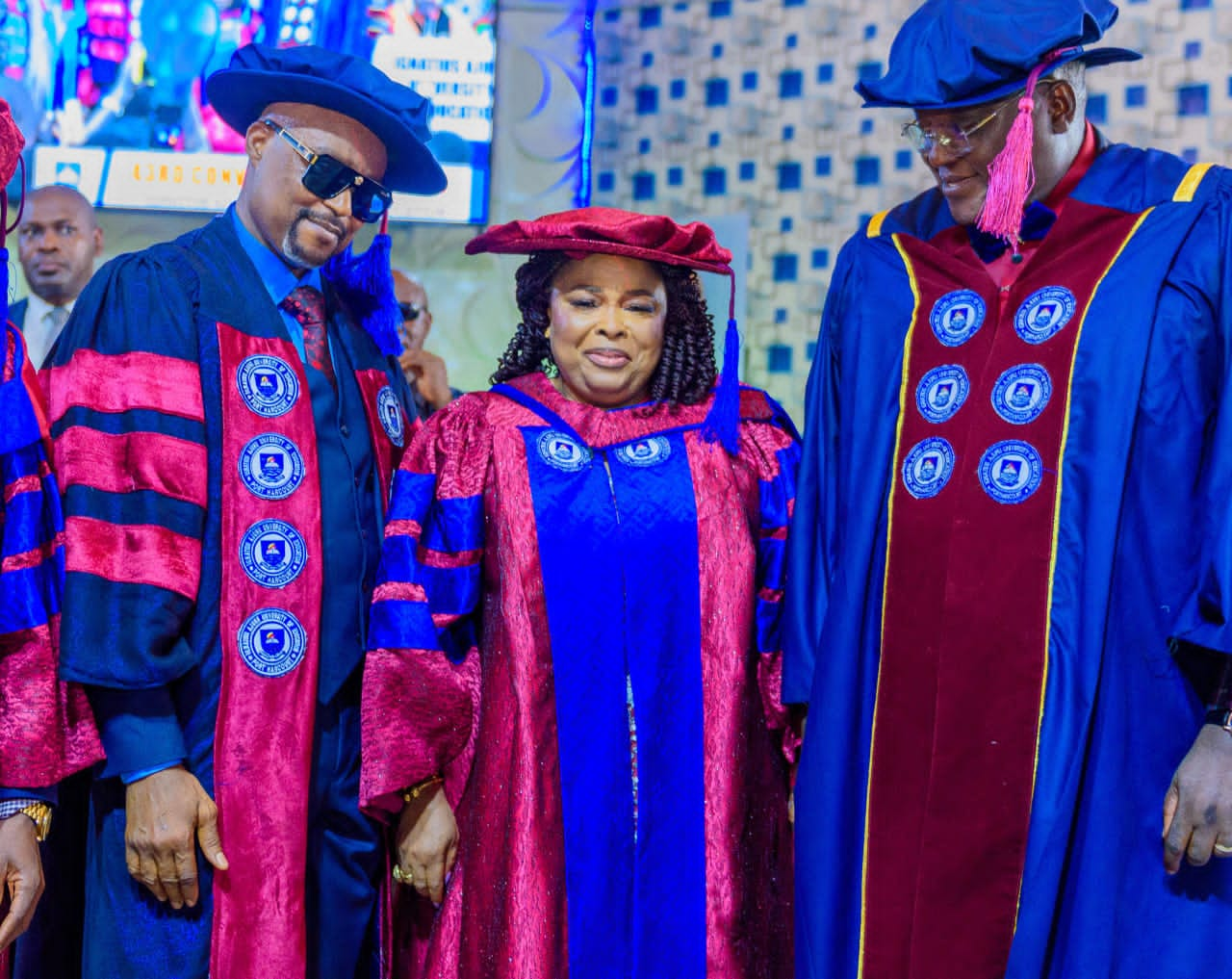Education
School Feeding Programme: Ministry Engages Stakeholders On Nutrition Guidelines
The Ministry of Humanitarian Affairs, Disaster Management and Social Development has engaged relevant stakeholders in a validation meeting on nutrition guidelines to improve on the school feeding programme.
The validation meeting on nutrition guidelines of the National Home-Grown School Feeding Programme was organised by the ministry in Abuja, last Thursday.
National Coordinator, National Social Investment Programme of the ministry, Umar Bindir, said the aim of the meeting was to have a globally acceptable document for the programme.
While noting that the school feeding programme was aimed at boosting the enrollment of pupils as well as their nutritional status, Bindir said, “the objective of the guidelines is to identify national nutritional requirements and reduce micronutrients deficiencies.We also need to promote nutrition best practices to strengthen the programme better”.
“The nutritional status is one of the most important components and objectives of the programme and this is what brought about nutritional guidelines that we are here to validate.
“The guidelines are so important to us knowing that part of the role of the state government is to develop the menu being developed by the nutritional officer in that state.
“We need to ensure that what is on that menu is of nutritional value and beneficial to the pupils nutritionally and academically,” he said.
In her remarks, the minister, Sadiya Umar-Farouq, noted that the school feeding programme began in 2016 and was implemented in 35 states of the federation including the Federal Capital Territory.
Represented by her Technical Assistant on National Home-Grown School Feeding Programme, ZainabAbubakar, Umar- Farouq said that the programme would provide one free nutritious meal to pupils from Primary 1 to Primary 3 in public schools nationwide.
According to Umar-Farouq, the school feeding is a collaborative programme between the Federal Government and state governments.
Also speaking, National President, Nutrition Society of Nigeria, Prof. WasiuAfolabi said that the school feeding programme could be breakfast or lunch.
Education
‘Our Target Is To Go Beyond Academic Accomplishments’

The Acting Vice Chancellor of Ignatius Ajuru University of Education, Port Harcourt, Prof. Okechuku Onuchuku, emphasised the need for students to go beyond academic achievements during the university’s 43rd Convocation ceremony.
The theme, “The University Culture In Practice, The IAUE Experience,” highlights the importance of embracing cherished traditions and intellectual values that define great universities.
Prof. Onuchuku encouraged the new graduates to work hard and persevere, noting that their convocation marks a new beginning in their careers and personal lives. He emphasised that they must prove themselves worthy of the certificates and prizes they have received.
According to him, out of 2,887 first-degree graduands, four made First Class, 403 secured Second Class Upper, 2,030 got Second Class Lower, and 450 graduated with Third Class. Additionally, 1,492 postgraduate students graduated, including 306 PhD holders.
The Sole Administrator of Rivers State, Vice Admiral Ibok-Ete Ekwe Ibas (Rtd), praised the university’s commitment to academic excellence and institutional maturity. He commended the Acting Vice Chancellor for achieving full accreditation for 47 academic programmes and implementing the NUC’s Core Curriculum Minimum Academic Standards.
The administrator urged the new graduates to uphold the positive values instilled in them by the university and strive for continuous knowledge and improvement.
By: King Onunwor
Education
Niger Delta Students Suspend Protest Against NDDC In PH

The Niger Delta Students Union Government, Rivers State Chapter (NIDSUG), has suspended its planned protest against the Niger Delta Development Commission (NDDC) state office in Port Harcourt. The suspension followed an intervention by the state Commissioner of Police, CP Olugbenga Adepoju.
The students had planned to protest on Thursday, citing alleged neglect by the NDDC, particularly in welfare and capacity-building programmes for students from the state. However, after the police intervention, the students agreed to participate in a roundtable discussion with the commission to address their concerns.
NIDSUG leader, Comrade Loveday Njoku, expressed dissatisfaction with the commission’s alleged exclusion of students from benefiting from its programmes. He presented a seven-point demand, including the reintroduction of scholarships for undergraduate and postgraduate students. Njoku emphasised that education is crucial for community development and urged the commission to invest in the future leaders of the state.
The students warned that if their demands are not met, they will resume the protest and occupy the state commission office until their demands are addressed. Despite previous attempts to reach out to the commission’s management team, the students claimed their efforts were unsuccessful.
By: Akujobi Amadi
Education
Administrator Inspects School

As part of efforts to improve the welfare and overall quality of education for students in Obio/Akpor Local Government Area, the Sole Administrator, Sir (Dr.) Clifford Ndu Walter DSSRS, FCAI, JP, paid an unscheduled visit to Universal Primary School, Rumukwurusi.
During the visit, Sir Walter expressed deep concern over the deplorable state of the school and its surrounding environment. He reaffirmed his administration’s commitment to the development of the education sector, stressing its critical role in nation-building.
“I have visited the primary school in Ogbogoro, and now I’m here at the Universal Primary School, Rumukwurusi. I am not satisfied with what I’ve seen,” he stated, indicating that more surprise visits to schools would follow.
To address the issues, the Sole Administrator directed the Council Engineer to commence process for rehabilitation of the school.
The visit was part of a broader initiative aimed at conducting on-the-spot assessments of educational facilities to determine the level of intervention required by the local government council.
Dr. Walter also assured the teachers of his unwavering commitment to revamp the school and improve the learning environment for both staff and students.

